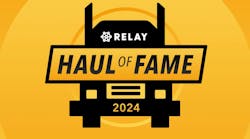Crisis is the most powerful force for change; it always has been,” observes George Washington University management professor William E. Halal, a leading authority on institutional and economic change. Long before the events of Sept. 11 and the collapse of Enron, Professor Halal was asking some telling questions about democracy and American business, questions that now seem more relevant than ever.
“Major corporations comprise economic systems that are as large and complex as national economies, but they are sill commonly controlled from the top down. Why would such control be bad for a national economy but good for a corporate economy?” he challenged in a 1999 interview with FLEET OWNER.
“It amazes me that we do not see the conflict with our democratic principles,” he noted. “Our daily work lives are typically spent in hierarchical systems which, ironically, are run by people who are among the biggest supporters of democracy and free enterprise — outside the corporation.”
Ah, the corporation. If ever there were a time for testing Professor Halal's theories about business and democracy, this must be it. Just as we are struggling together to make the world safe again for the governmental democracy we cherish, we are simultaneously watching Enron executives, those captains of capitalism, tell (or not) a tale of free enterprise gone desperately wrong — a strange juxtaposition of events indeed. As they shelter themselves under the Fifth Amendment, it is impossible not to wonder if the Enron executives appreciate the irony of what they appear to have done — spin democracy into gold, for the few at the expense of the many.
Perhaps the rest of us, however, should be asking one another a few tough questions of our own about how we see democracy. Do we really believe that democracy is essential for politics but unsuited for daily use in factory and field?
If we are going to live up to our ideals, then we have to work to make democracy and free enterprise a daily reality,” Halal contends. “We have to penetrate below the election level and bring our democratic principles to our businesses and other institutions.”
Professor Halal calls these new organizational structures “democratic enterprises,” and says they are characterized by collaboration, knowledge and the power of initiative. It's interesting to consider how a truck fleet, for example, might function as a democratic enterprise. “It might be useful for drivers to organize themselves into teams,” Halal offers. “This would create a labor market within the organization in which drivers would bid on loads, routes or contracts. Work would be awarded based upon the performance of the team and the merit of their bid, which might include service considerations and even rates.
Under this system, Halal suggests, drivers would have the freedom to work out their own problems among themselves, not only making their jobs more satisfying, but also harnessing their energy and imagination for innovation. Other self-directed departments, such as maintenance, sales or even dispatch, could sell their services to the driver teams.
Whether or not we finally choose to bring more of the principles of democracy into our businesses, we cannot ignore the new questions the events of the past few months have laid at our doors. What does it really mean to be a citizen, for instance, a citizen operating a business in a democracy such as ours?


